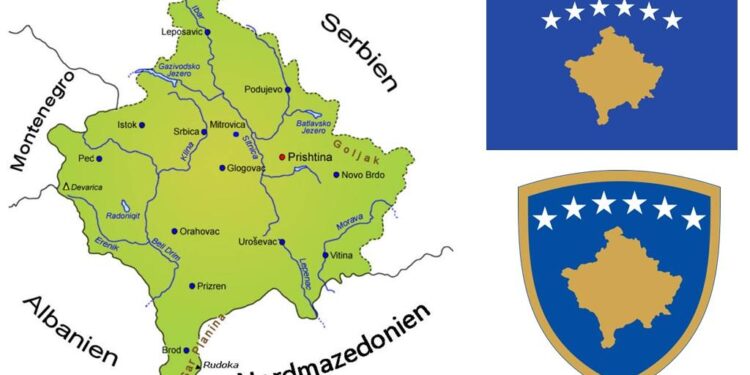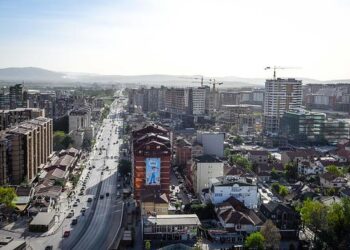Kosovo stands at a critical crossroads, grappling with persistent political stagnation and economic challenges that have hindered its progress since declaring independence. In the latest analysis by the Carnegie Endowment for International Peace, experts delve into the complex factors contributing to this inertia and propose strategic pathways for overcoming entrenched obstacles. This article explores how Kosovo can navigate the delicate balance between internal reforms and external pressures to unlock new opportunities for stability and growth in the region.
Root Causes of Political Stalemate in Kosovo and Their Regional Implications
The enduring political gridlock in Kosovo is driven by a complex interplay of factors that continue to stymie progress. Among these, deep-seated ethnic divisions remain paramount, fostering mistrust between Kosovo Albanian leaders and the Serb minority. This schism is further entrenched by divergent visions of sovereignty and governance, creating a paralysis within legislative and executive branches alike. Additionally, external actors exert significant influence, with neighboring states leveraging political allegiances to maintain their strategic interests. Institutional weaknesses, including corruption and fragile rule of law, exacerbate the stalemate by undermining public confidence in democratic processes.
- Ethnic Fragmentation – Perpetuates mistrust and complicates policy consensus.
- External Influence – Regional powers influencing internal politics.
- Institutional Instability – Weak governance structures prevent effective leadership.
- Lack of Economic Opportunities – Fuels social discontent and hinders reform efforts.
These internal dynamics reverberate across the Western Balkans, threatening regional stability and integration prospects. The impasse restricts cooperation on critical issues like security, trade, and infrastructure, deterring international investment. Moreover, unresolved political tensions risk reigniting ethnic conflict, destabilizing neighboring countries connected through historical and socio-political ties. The Kosovo stalemate thus represents a broader challenge to European Union enlargement policies and peacebuilding initiatives in the region.
| Regional Impact | Consequence | Potential Risk |
|---|---|---|
| Security Cooperation | Limited intelligence sharing | Increased vulnerability to organized crime |
| Economic Integration | Stalled infrastructure projects | Economic stagnation and youth emigration |
| Diplomatic Relations | Frozen normalization talks | Undermining EU accession ambitions |
Bridging Divides Through Inclusive Dialogue and Institutional Reform
To move Kosovo beyond its current political stalemate, fostering a space where all voices are heard is essential. Inclusive dialogue must prioritize genuine engagement between ethnic communities, civil society, and political stakeholders. This approach not only breaks down long-standing barriers but also cultivates trust, which has been eroded by years of conflict and political inertia. Effective communication channels, backed by international support, can create forums for candid discussion on sensitive issues such as governance, minority rights, and economic development. Key principles for success include:
- Respect for diversity: Acknowledging differing perspectives as the foundation for compromise.
- Transparency: Ensuring that all negotiations are conducted openly to build credibility.
- Empowerment of youth and women: Integrating marginalized voices to drive forward-looking solutions.
On the institutional front, structural reforms must be implemented to align legal frameworks with the realities on the ground. This entails reforming judicial bodies and law enforcement agencies to operate independently and fairly, while also increasing the accountability of political leaders. A strategic approach to reform can be summarized in the following table:
| Institution | Challenge | Reform Focus |
|---|---|---|
| Judiciary | Lack of independence | Merit-based appointments, anti-corruption measures |
| Police | Ethnic bias in enforcement | Training diversity, community policing |
| Parliament | Political fragmentation | Cross-party collaboration frameworks |
Successful reform and dialogue are interdependent: improvements in institutions build the trust needed for genuine discourse, while inclusive dialogue informs and legitimizes reform agendas. Together, they lay a foundation for durable peace and democratic progress in Kosovo.
Strategic Steps for International Engagement to Revitalize Kosovo’s Progress
Reinvigorating Kosovo’s trajectory on the international stage demands a multifaceted approach that goes beyond conventional diplomacy. Engagement must be deliberate, coordinated, and sustained, involving partnerships with regional neighbors, international organizations, and key global players. Prioritizing areas such as economic development, rule of law, and governance reforms can build trust and attract strategic investments. A renewed focus on transparent institutions coupled with civil society empowerment will serve as a foundation for deeper integration into Euro-Atlantic structures.
Key strategic actions include:
- Strengthening Regional Dialogue: Facilitating consistent dialogues between Kosovo and neighboring countries to address longstanding disputes and foster cooperation.
- Leveraging International Aid: Effectively channeling donor assistance toward projects that enhance infrastructure and human capital.
- Enhancing Security Collaboration: Expanding cooperation with NATO and EU missions to bolster stability and counter external threats.
- Promoting Economic Integration: Supporting trade agreements and cross-border initiatives to stimulate growth and employment.
| Focus Area | International Actor | Expected Outcome |
|---|---|---|
| Governance Reform | EU & USA | Enhanced transparency and accountability |
| Security Partnership | NATO | Improved regional stability |
| Economic Support | World Bank | Increased foreign investments |
| Regional Cooperation | Balkans Forum | Reduced conflicts and stronger ties |
Future Outlook
As Kosovo continues to navigate the complexities of political stagnation and economic challenges, overcoming inertia remains a pivotal task for its future stability and growth. The insights provided by the Carnegie Endowment for International Peace highlight both the obstacles and opportunities facing the region. Moving forward, sustained international engagement combined with domestic reforms will be essential to break the cycle of paralysis and set Kosovo on a path toward durable progress.
















